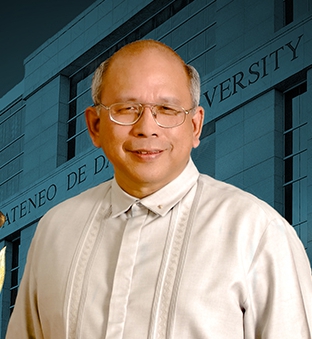Despite sounding like a very progressive Catholic, Ateneo de Davao University president Joel Tabora, S.J. has never really stated, at least not publicly, whether he agrees with the underlying logic of the Reproductive Health (RH) Law.
When asked on Twitter by Filipino Freethinkers president Red Tani if he believes that using artificial contraception is inherently evil (as defined by the Roman Catholic Church in Casti Connubii and Humanae Vitae), Tabora replied:
“Based on the level of natural law that is presupposed in those encyclicals, yes. But I do not think an abstract category such as “inherently evil” is fruitful in understanding the demands of Christian ethics today.”
Notice that the first sentence is as qualified as it gets, and the second sentence removes whatever illusion of significance the first sentence has to Red’s question on Tabora’s stand on contraception. And if that wasn’t enough, Tabora further said:
“To illustrate: is it “inherently” evil to separate the conjugal act from both its unitive and procreative meanings? Do not get me wrong. The notion of natural law and its use as a foundation for moral teaching has developed. It is “complicated.” Doctrines develop. There was a time when the Church tolerated slavery and persecuted heretics.”
It seems that Tabora is being deliberately ambiguous or evasive by implicitly undermining the encyclicals without expressly going against the Church’s teachings. But does his doublespeak mean dishonesty? Let the reader be the judge, keeping in mind that the university president’s job description is unlikely to include the right to publicly deny the Catholic position.
But while his statements on RH are so carefully crafted, look how freely he speaks of things he truly believes in:
“I certainly believe there are grave sins. That’s why there is the Cross. And Resurrection.”
This time he didn’t mention the Church, let alone the encyclicals. He categorically stated his belief in Christ – something he did not do on the issue of RH and contraception and whether he agrees with the Vatican’s teachings.
It has been Fr. Tabora’s thesis that there is nothing in the RH law “which prevents a good Catholic from being a good Catholic.” He also said that

“If the “Catholic Church” is truly convinced of its position, convince first the Catholics of it, then propose law based on their collective witness. Running to legislation to do the job of proclamation and religious education will not convince Catholics who are not convinced.”
In those two sentences Fr. Tabora summed up everything secularism stands for. It doesn’t matter if he never clearly stated his support for reproductive health, because he left a reminder that the legislature ought not to aid any religion. And as far as the advocacy for the separation of Church and State is concerned, this Jesuit educator is as secular as Catholic priests ever get.
* * * * *
Author’s Note: I realize that the title of the article should have been “A Jesuit’s Apparent Doublespeak on the RH Law” and that a certain part should have been “…his apparent doublespeak…” to better reflect my own thoughts and interpretations. In the name of journalistic integrity however, the title and the article will remain as such albeit this note.


the problem with atmosfera's piece is that it assumes what needs to be proven, that Tabora's comments are "doublespeak" and therefore not rationally defensible. what the article shows is that atmosfera has a rather restricted and narrow view of what amounts to rational discourse, a problem that afflicts many freethinkers whose rationality is basically that of the enlightenment. no complexity, no ambiguity, no variety.
@Jong,
The title of your piece is self-defeating in my view, since Tabora actually helps the cause of pluralism in society. Of course, he will never step out of his vocation, but to hear someone as open and broadminded as Tabora is very refreshing.
Read further his tweets on the topic of divorce.
For me, Fr Tabora is way, way better than dealing with the likes of Rizalito David, Kit Tatad, or Eric Manalang. In Fr. Tabora's blog, I actually had a run-in with a priest who goes by the name of Russell Bantiles (@snabur) who serves in your place -Davao. These are the ones with whom a reasoned discussion is nearly impossible.
Oh, and I almost forgot Boncan, who can discuss also, but blows his fuse at times, like in Red's article in the Inquirer on why the Church should pay taxes if it doesnt remove its tarps. 🙂